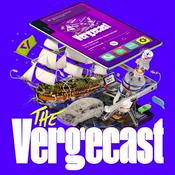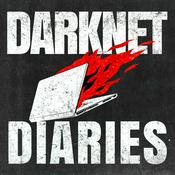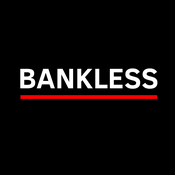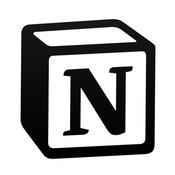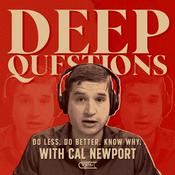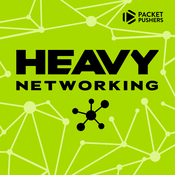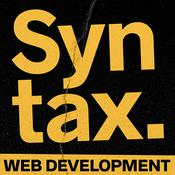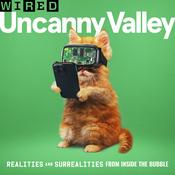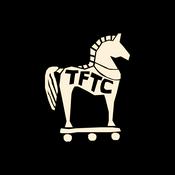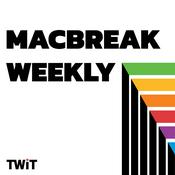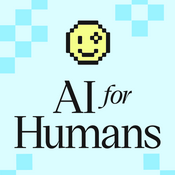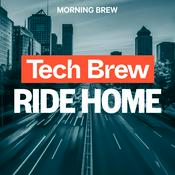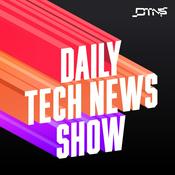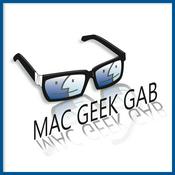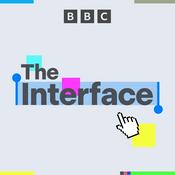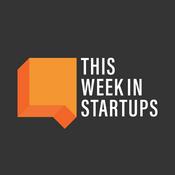606 episodes
581 - Advice and Guidance in Practice: Improving Equity and Outcomes for Patients and Clinicians
02/2/2026 | 44 mins.In this episode of Talking HealthTech, Peter Birch speaks with a panel of healthcare experts, including Stephanie Hodgson, physiotherapist, health project manager and industry PhD candidate at ConsultMed; Dr Shoma Dutt, paediatric gastroenterologist and senior staff specialist at the Children’s Hospital at Westmead; Dr Matthew Lam, GP and clinical advisor to ConsultMed at Riverstone Family Medical Practice; Charlie Winstanley, general manager of cardiovascular at Guy’s and St Thomas’s NHS Foundation Trust; and Dalia Croxton, senior project manager for digital health and business systems at Mater Group.
The conversation dives into the evolving role of advice and guidance (A&G) models in shaping patient outcomes, clinician workflows, and healthcare access across Australia and the UK.
The panel discusses practical benefits, such as reducing wait times, improving triage, and supporting GPs to manage complex cases more confidently.
Gain insights into how digital referral pathways and emerging technologies like AI are changing the way specialists and primary care providers collaborate.
This episode also highlights lessons learned, the importance of leadership and culture, and the challenges that remain in making A&G work effectively for both clinicians and patients.
Key Takeaways
👩⚕️ Advice and guidance (A&G) allows GPs and primary care providers to obtain timely specialist input without formal referrals, helping address outpatient waitlists and geographical inequities in access to care.
🚀 Examples from paediatrics, mental health, endocrinology, and other specialties show A&G resolves a significant proportion of referrals, keeping patients managed in primary care or redirecting them to more suitable services.
🌏 Both Australian and UK health systems are implementing A&G at scale, with New South Wales and Queensland adopting statewide models and the NHS seeing significant appointment diversion, reducing waiting times and improving resource use.
🤝 Effective A&G relies on streamlined workflows, bi-directional communication between primary and specialist care, clear referral criteria, and support for GPs as central care coordinators.
🤖 The future of A&G may include multidisciplinary expansion, integration with allied health, and advanced technology such as AI to improve efficiency and access for patients—while ensuring the focus remains on better outcomes and equity.
Timestamps
0:00 – Introduction
1:18 – Stephanie Hodgson defines advice and guidance
3:02 – Dr Shoma Dutt shares real-world impacts in paediatric gastroenterology
5:32 – Dr Matthew Lam describes case studies where A&G adds value and boosts equity
9:54 – Stephanie Hodgson discusses the impact of data and equity
13:01 – Dr Shoma Dutt on developing a statewide referral criteria
16:43 – Charlie Winstanley talks about A&G adoption
23:11 – Panel consensus on key ingredients for scaling A&G: leadership, technology, education, making it frictionless for GPs, and measuring impact
33:07 – Dalia Croxton on A&G transparency for patients
35:20 – Charlie Winstanley and Stephanie Hodgson explore future directions
40:21 – Dr Matthew Lam on keeping patient outcomes at the centre
-------
Want to keep the conversation going?
The full article and extended show notes for this episode are available inside the THT+ Community here: View Full Article Here
In the THT+ Community, our members keep the discussion going, share perspectives, and unpack what this episode actually means in...580 - Beyond Episodic Care: How Digital Health Platforms Transform Care Coordination
01/2/2026 | 18 mins.In this episode of Talking HealthTech, Peter Birch speaks with Nalaka Withanage, CEO and co-founder of Data Capture Experts, the organisation behind the Digital Health Platform DC2Vue.
The discussion explores the fragmentation of data in healthcare and the importance of longitudinal care records.
They also examine the evolving role of digital health platforms compared to traditional EHRs, along with the opportunities and challenges associated with artificial intelligence and data governance in healthcare innovation.
Dive into the practical steps healthcare organisations can take to build strong data foundations, improve interoperability, and create workflows that truly support person-centred care.
The conversation also goes beyond the hype around AI, examining how real value emerges only when technology is underpinned by complete, accurate, and context-rich data.
Key Takeaways
🗂️ Data fragmentation in healthcare is a core challenge, often caused by the use of multiple, siloed systems across various care settings.
👩⚕️ Longitudinal care records provide a continuous, patient-centred view across different healthcare touchpoints, improving care coordination and outcomes.
🔑 Foundational data quality and integration are essential for enabling advanced analytics, artificial intelligence adoption, and workflow optimisation.
🔒 Privacy, consent management, and security, using principles like zero trust, must be embedded in digital health platforms to balance innovation with safety.
🚀 To unlock the full value of AI in healthcare, organisations should focus on strong data foundations, process-oriented thinking, and workflow automation before layering in advanced technologies.
Timestamps
00:00:00 — Introduction
00:01:25 — Why data fragmentation persists in healthcare
00:02:54 — What is a longitudinal care record
00:03:59 — Highlighting benefits of longitudinal health records
00:05:08 — Differences between Digital Health platforms and traditional EHRs
00:07:38 — The role of AI in digital health
00:11:12 — Balancing innovation with privacy, security, and governance
00:14:04 — Key advice for healthcare CIOs on leveraging data and AI
00:15:14 — The roadmap for DC2 View and trends in virtual care and remote patient monitoring
———
Want to keep the conversation going?
The full article and extended show notes for this episode are available inside the THT+ Community here: View Full Article Here
In the THT+ Community, our members keep the discussion going, share perspectives, and unpack what this episode actually means in practice with other people working in healthtech.
If you’re enjoying the show and want access to full articles, episode discussions, meetups, and member-only content, you can learn more about becoming a THT+ Solo Member here: talkinghealthtech.com/thtplus.
And if this episode was useful, leaving a review or sharing it with someone in the industry always helps.
Mentioned in this episode:
This episode is supported by Vanta - the platform trusted by 14,000+ companies to get SOC 2 and ISO audit-ready faster and build enterprise-grade security early. Save $1,000 at https://vanta.com/THT579 - Scaling Predictive Healthcare: How No Code Platforms Drive Personalised Digital Therapeutics
29/1/2026 | 33 mins.In this episode of Talking HealthTech, Peter Birch speaks with Leon Young, CEO and Founder at Cogniss, and Dr Frank Iorfino, Associate Professor at the Brain and Mind Centre, University of Sydney.
The discussion focuses on no-code health technology platforms, digital mental health solutions, and the challenges and opportunities in delivering predictive and preventative healthcare, particularly in youth mental health.
The episode covers Cogniss' evolution, the role of digital and predictive tools in healthcare systems, and real-world applications in clinical research and practice.
The conversation offers insights into how health professionals can use no-code platforms to build, refine, and scale digital solutions, the importance of personalisation in mental health care, and the ways predictive analytics can identify risks and support early intervention.
It also examines the barriers to scaling innovation in health systems and how collaborative approaches are helping to bridge the gap between pilots and broader implementation.
Practical examples of digital health tools in action are highlighted, from apps supporting youth mental health to predictive solutions for conditions such as sepsis and chronic illness.
Key Takeaways
✨ No-code technology enables health professionals and researchers to build, maintain, and scale digital health solutions more efficiently, reducing development costs and barriers to market entry.
🤝 Effective prediction and early intervention in healthcare, particularly mental health, require accessible digital solutions that can personalise care, track outcomes, and help prevent illness escalation.
📱 Real-world applications, such as using wearables and health data integration for predictive models, are being developed for youth mental health and chronic conditions like cancer and autoimmune diseases.
🔗 The challenge of delivering digital therapeutics at scale stems from complex procurement, a lack of clear ownership in health systems, and the need for unified infrastructures that support solution interoperability and patient data control.
🌏 Initiatives like Ripple aim to support priority populations and address gaps in digital health by building a catalogue of evidence-based solutions targeted to specific health challenges, such as women’s health and youth mental health.
Timestamps & Main Topics
00:00 Introduction
01:08 Leon Young introduces himself and Cogniss
02:57 Dr Frank Iorfino shares his experience in youth mental health and digital solutions
04:08 Discussion on the importance of early intervention
06:21 The vision for predictive tools
08:28 Dr Frank Iorfino explains the Mind Your Mind app
10:54 Researcher challenges and the value of no-code platforms
13:01 Adapting no-code solutions beyond white-labelled apps
14:09 Growing the platform through demand-driven development
17:03 The need for infrastructure that can deploy multiple digital solutions
19:49 Areas of highest potential for predictive healthcare technologies
20:36 Examples of predictive health projects
22:12 Dr Iorfino expands on why youth mental health is a pressing priority
24:51 Barriers to scaling predictive and preventative healthcare solutions
26:11 Developing a marketplace approach to better match innovations
30:37 Closing remarks and how to connect with Cogniss
----
Want to keep the conversation going?
The full article and extended show notes for this episode are available inside the THT+ Community here: View Full Article Here
In the...578 - The Passwordless Future of Healthcare: Lessons from Imprivata’s Implementation Journey
28/1/2026 | 15 mins.In this episode of Talking HealthTech, Peter Birch sits down with Brad Gwyther, Principal Consultant at Imprivata, to explore the evolving landscape of secure access and identity management in clinical settings. The conversation focuses on the New Zealand healthcare ecosystem while highlighting trends and challenges that resonate globally.
Brad and Peter discuss the daily struggles clinicians face with password management, the risks of weak access controls, and the impact of inefficient authentication on both patient safety and clinical workflow.
They also examine modern approaches to secure access, including passwordless authentication, biometric logins, single sign-on, and mobile device management.
These solutions can streamline clinical workflows while maintaining rigorous security and meeting audit requirements.
The discussion also delves into practical lessons for implementing authentication solutions across desktop and mobile environments, addressing the complexities of shared workstations, roving staff, and multiple applications.
This episode was recorded live at the Imprivata booth during HiNZ Digital Healthcare Week in New Zealand, providing listeners with real-world examples of how hospitals are modernising access management to improve efficiency, accountability, and patient care.
Key takeaways
🔑 Password management and the shift towards passwordless authentication are key concerns in healthcare, due to multiple system access requirements
🩺 Implementing secure, efficient authentication methods that can help clinicians provide better patient care without interruption
🛡️ Security needs to be balanced with ease of access, tailored to different workflows and physical locations within healthcare facilities
📱 Mobile device management and secure shared device usage are becoming increasingly important as clinical mobility grows
🌏 The drive towards efficient, secure access is a global issue, with maturity and practices varying across organisations, but a common goal shared worldwide
Timestamps
00:00 – Introduction
00:50 – Brad Gwyther explains his role at Imprivata
01:25 – Needs of Imprivata’s customers in New Zealand
02:52 – Balancing security and ease of use in clinical authentication
04:01 – Passwordless authentication and ongoing challenges
05:55 – Implementation process
07:18 – Integrating clinical applications and systems
08:36 – Mobile device management and traceability
09:44 – Global challenges in secure access for healthcare
11:15 – Innovations in authentication and aligning tech with clinical workflows
___
Want to keep the conversation going?
The full article and extended show notes for this episode are available inside the THT+ Community here: View Full Article Here
In the THT+ Community, our members keep the discussion going, share perspectives, and unpack what this episode actually means in practice with other people working in healthtech.
If you’re enjoying the show and want access to full articles, episode discussions, meetups, and member-only content, you can learn more about becoming a THT+ Solo Member here: talkinghealthtech.com/thtplus.
And if this episode was useful, leaving a review or sharing it with someone in the industry always helps.
Mentioned in this episode:
This episode is supported by Vanta - the platform trusted by 14,000+ companies to get SOC 2 and ISO audit-ready faster and build enterprise-grade security early....577 - Hybrid and Digital Care: Balancing Technology, Regulation, and Human Touch in General Practice
21/1/2026 | 47 mins.In this audio-only episode of Talking HealthTech, Dr Max Mollenkopf, a Newcastle GP and practice owner, speaks with Tim Doyle, founder and CEO of Eucalyptus, about the evolution and future of primary care in Australia.
The discussion explores Eucalyptus’s digital health model, how it is changing patient experiences, supporting clinicians, and connecting with traditional general practice.
The conversation covers key challenges facing healthcare today, including continuity of care, regulatory considerations, clinician engagement, and the shifting expectations of patients in a digital era.
They share candid insights on scaling digital clinics, balancing technology with human connection, and the opportunities and limitations of hybrid care models.
This episode offers practical perspectives on how digital and traditional care can work together, the evolving role of the GP, and what the next generation of Australian healthcare may look like.
Key Takeaways
🩺 The rise of digital-first clinics is changing how patients interact with primary care, focusing on convenience and continuity through technology.
👩⚕️ Clinician independence and quality assurance, including pre-screening and audit systems, are central to responsible digital healthcare delivery.
💡 Patient engagement is evolving, with increased demand for more data, self-ownership of health, and a desire for ongoing support beyond traditional appointments.
💬 The lines between wellness, primary care, and marketplace health products are blurring, raising questions around clinician roles, value, and regulation.
🔗 Integrating digital and in-person (hybrid) care paths is viewed as essential for the future, with attention to necessary safeguards, incentives, and patient consent.
Timestamps
00:00 — Introduction
00:36 —Dr. Max Mollenkopf on panel experiences and challenging ideas
02:02 —Tim Doyle explains Eucalyptus’s origins and vision
06:11 — Addressing continuity, fragmentation, and care platforms
13:29 — Access to health information and regulatory challenges
17:33 — Business models, clinician obligations, and monetisation
24:45 — Regulation, industrial standards, and cannabis clinics
26:58 — Quality audits and the role of technology in large-scale care
32:23 — Value in care, rebates, and consulting models
37:00 — The intersection of wellness, screening, and preventative health
42:38 — A hybrid model for future healthcare
Want to keep the conversation going?
The full article and extended show notes for this episode are available inside the THT+ Community here:
View Full Article Here
In the THT+ Community, our members keep the discussion going, share perspectives, and unpack what this episode actually means in practice with other people working in healthtech.
If you’re enjoying the show and want access to full articles, episode discussions, meetups, and member-only content, you can learn more about becoming a THT+ Solo Member here: talkinghealthtech.com/thtplus.
And if this episode was useful, leaving a review or sharing it with someone in the industry always helps.
Mentioned in this episode:
This episode is supported by Vanta - the platform trusted by 14,000+ companies to get SOC 2 and ISO audit-ready faster and build enterprise-grade security early. Save $1,000 at https://vanta.com/THT
More Technology podcasts
Trending Technology podcasts
About Talking HealthTech
Conversations with clinicians, vendors, policy makers and decision makers to promote innovation and collaboration for better healthcare enabled by technology.
Learn about digital health, medical devices, medtech, biotech, health informatics, life sciences, aged care, disability, commercialisation, startups and so much more.
Podcast websiteListen to Talking HealthTech, The Vergecast and many other podcasts from around the world with the radio.net app
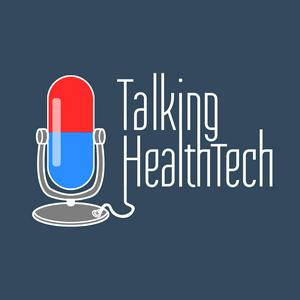
Get the free radio.net app
- Stations and podcasts to bookmark
- Stream via Wi-Fi or Bluetooth
- Supports Carplay & Android Auto
- Many other app features
Get the free radio.net app
- Stations and podcasts to bookmark
- Stream via Wi-Fi or Bluetooth
- Supports Carplay & Android Auto
- Many other app features


Talking HealthTech
Scan code,
download the app,
start listening.
download the app,
start listening.

